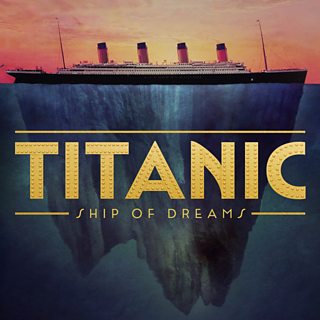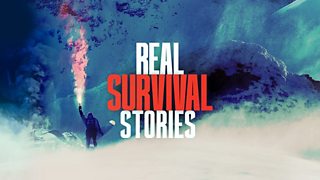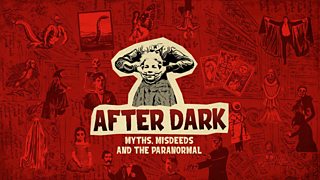'Call the Midwife' star uncovers Great-Uncle's Titanic survival story
In the popular imagination, the RMS Titanic epitomises Edwardian excess. One pictures crystal chandeliers suspended over parquet floors, white-tie dinners featuring 11-course meals, and orchestras playing waltzes as ladies dressed in the finest Parisian fashions descend the Grand Staircase.
Yet a few metres below this gilded floating palace, another Titanic existed. A hellish underworld where working-class men toiled in extreme heat, shovelling the coal that powered the great vessel.
Among them was Jimmy McGann, great uncle of ÃÛÑ¿´«Ã½’s “Call the Midwife” star, Stephen McGann. The new podcast from Noiser, Stephen and Paul McGann explore life and death on the most infamous ship in history.
You can read more history articles .
The ÃÛÑ¿´«Ã½ is not responsible for the content of external websites.
"It was amazing," Stephen recalls, describing the moment his Aunt Mary first told him about “Titanic McGann.”
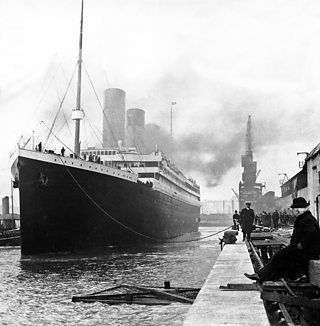
The problem was that Aunt Mary didn’t know any of the details surrounding Jimmy’s story, and no one else in the family could even confirm that he was on board. But many years later, Stephen’s wife found mention of a “James McGann” in Colonel Archibald Gracie’s famous memoir The Truth About the Titanic.
"It was a Spielberg focus-pull moment," McGann describes "My Auntie Mary was absolutely right."
Then, in 2012, a breakthrough: while scouring through American newspaper archives, Stephen stumbled upon a firsthand testimony given by Jimmy McGann.
"It was so moving, so desperately moving," Stephen recalls.
Jimmy McGann worked in the Titanic's "Black Gang", so named for their coal-blackened appearance. They were predominantly Irish Catholics whose families had fled the potato famine, only to find themselves in Liverpool's dockland slums. By the time the Titanic set sail, these Liverpudlian workers had effectively gained what Stephen describes as "a monopoly on Great Britain's empire coal steamship trade in the engine room."
On the Titanic, men like Jimmy worked in conditions few of us today could imagine.
"Many of them went stark naked [...] because it was so hot," Stephen explains, "No food breaks, [...] no loo breaks for hours on end." And though their work was vital for the survival of everyone on board, it went almost entirely unnoticed. "The passengers didn't even know they were there, I don't think," says Stephen, "they were kind of an invisible engine."

When the Titanic collided with that fateful iceberg at 11:40 pm on April 14th, 1912, Jimmy and the rest of the “Black Gang” were ordered to stay at their posts and it wasn’t until 1:40 am - a mere 40 minutes before the Titanic sank that they were relieved of duty.
They then faced the harrowing task of ascending through the ship’s rapidly flooding bowels, fighting past thousands of panicked passengers all clambering to get to one of the precious few lifeboats above.
Jimmy made it to the deck around 1.50 am. At this point, the ship’s bow was already completely submerged and all the main lifeboats had long since departed. However, there remained four “collapsible” lifeboats meant for the crew made of kapok, cork, and heavy canvas. Jimmy and his comrades made their way to “Collapsible A” only to find it was stuck and could not be launched. Now, their only option was “Collapsible B” positioned above the officer’s quarters. The men were able to get it free but as soon as they did tragedy struck: a large wave hit, capsizing the lifeboat and sweeping it out into the freezing ocean.
As the Titanic sank ever deeper into the Atlantic, Jimmy climbed towards the captain’s cabin— one of the highest points on the ship. There, he encountered Captain Edward J. Smith who reportedly turned to the crew and said: "You've done your duty, I release you all... It's every man for himself."
With that, Jimmy jumped into the icy waters and began swimming for his life.
The sea was a frigid -2 degrees Celsius — water so cold that it takes one’s breath away and feels excruciatingly painful on the skin. Almost as soon as Jimmy landed in the water, an enormous wave created when the Titanic’s forward smokestack crashed into the sea swept him away.
By sheer chance, this wave carried him near the overturned Collapsible B which he was able to scrabble atop, along with 30 or so other survivors.
What followed, Stephen says, was "one of the most fascinating and terrible human parts of the episode." The makeshift raft was already dangerously full, and any additional weight could doom them all. Those lucky enough to make it on were forced to use oars to push away their friends and colleagues struggling in the water.
Then came what Stephen describes as a "Dante's Inferno" as the desperate cries of those in the water "wailed across the still Atlantic." Jimmy and his companions, perched precariously on their overturned raft, could do nothing but listen as the voices gradually subsided and then fell silent.
In the quiet dark, the men began reciting the Lord’s Prayer, their eyes desperately scanning the horizon for any sign of a rescue vessel. Finally, as dawn broke, they spotted the lights of the Carpathia far off in the distance. Their troubles were far from over, however. The dangerously overloaded raft was slowly sinking and likely wouldn’t hold long enough for the Carpathia to reach them. Luckily, they were able to get the attention of another lifeboat that had extra room.
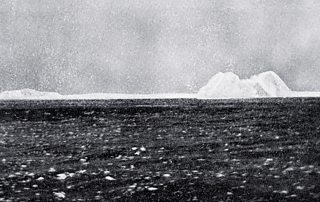
At 8:30 am, after six gruelling hours, Jimmy and his fellow survivors were rescued. They were among the last people to be pulled from the Atlantic.
Suffering from frostbite, Jimmy was treated at St Vincent's Hospital in New York. Shortly after, he returned to England and, remarkably, returned to work as a seaman.
"They were a tough breed," Stephen describes, "That was their livelihood."
Jimmy later married and had two children. Tragically, just a few years after surviving the Titanic disaster, he died of pneumonia. His story may have faded into obscurity had it not been for the tireless efforts of his great-nephew Stephen McGann.
"When you do genealogy," Stephen reflects, "one of the most quietly rewarding things is that there are souls inside those records who [haven't been thought of] for more than 100 years. The minute you say the name out loud, there's somebody there again... This is who I am. This is my story. I lived once and this happened to me."
More from the ÃÛÑ¿´«Ã½!
-
![]()
Real Survival Stories
In 1994, Dik Barton leads a dive to explore an uncharted section of RMS Titanic.
-
![]()
Short History Of...
Witness history's most incredible moments and remarkable people.
-
![]()
American History Hit
What was life like for the Pilgrims on board the Mayflower during their 66 days at sea?
-
![]()
After Dark: Myths, Misdeeds and the Paranormal
What was the Ghost Ship "Mary Celeste"?
